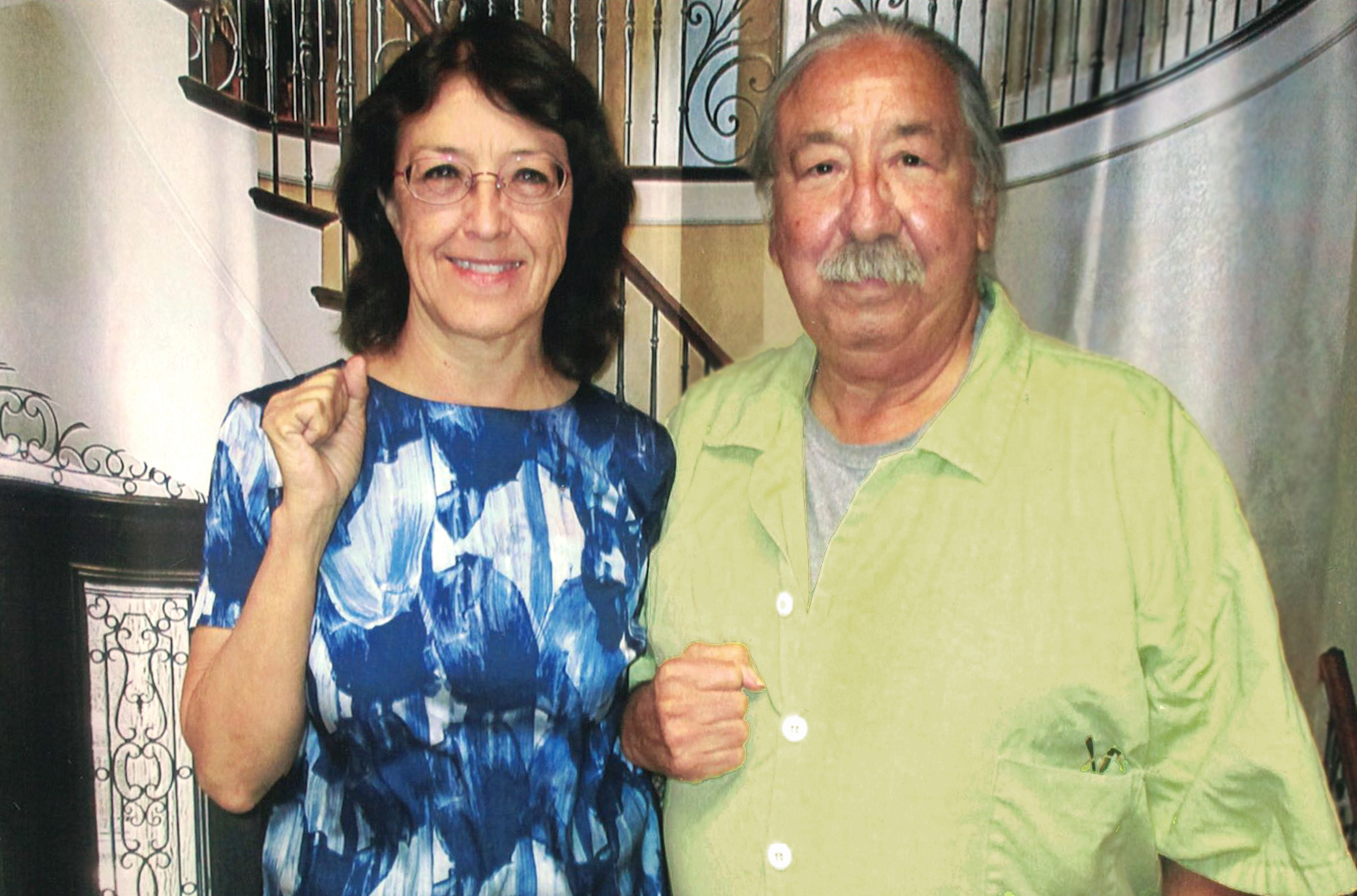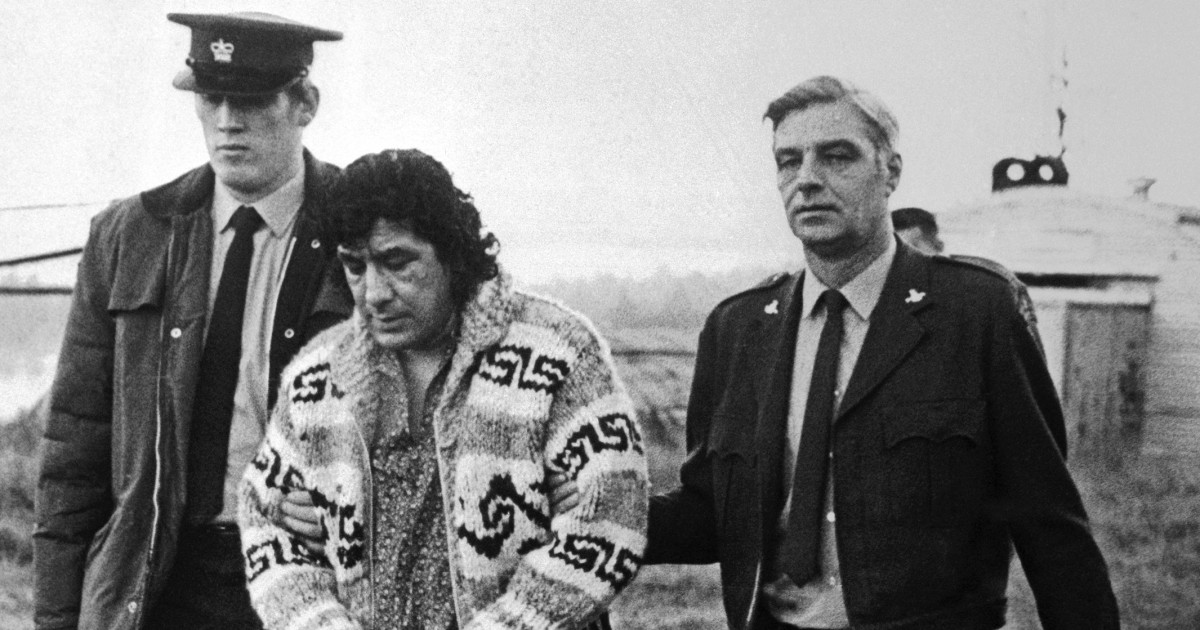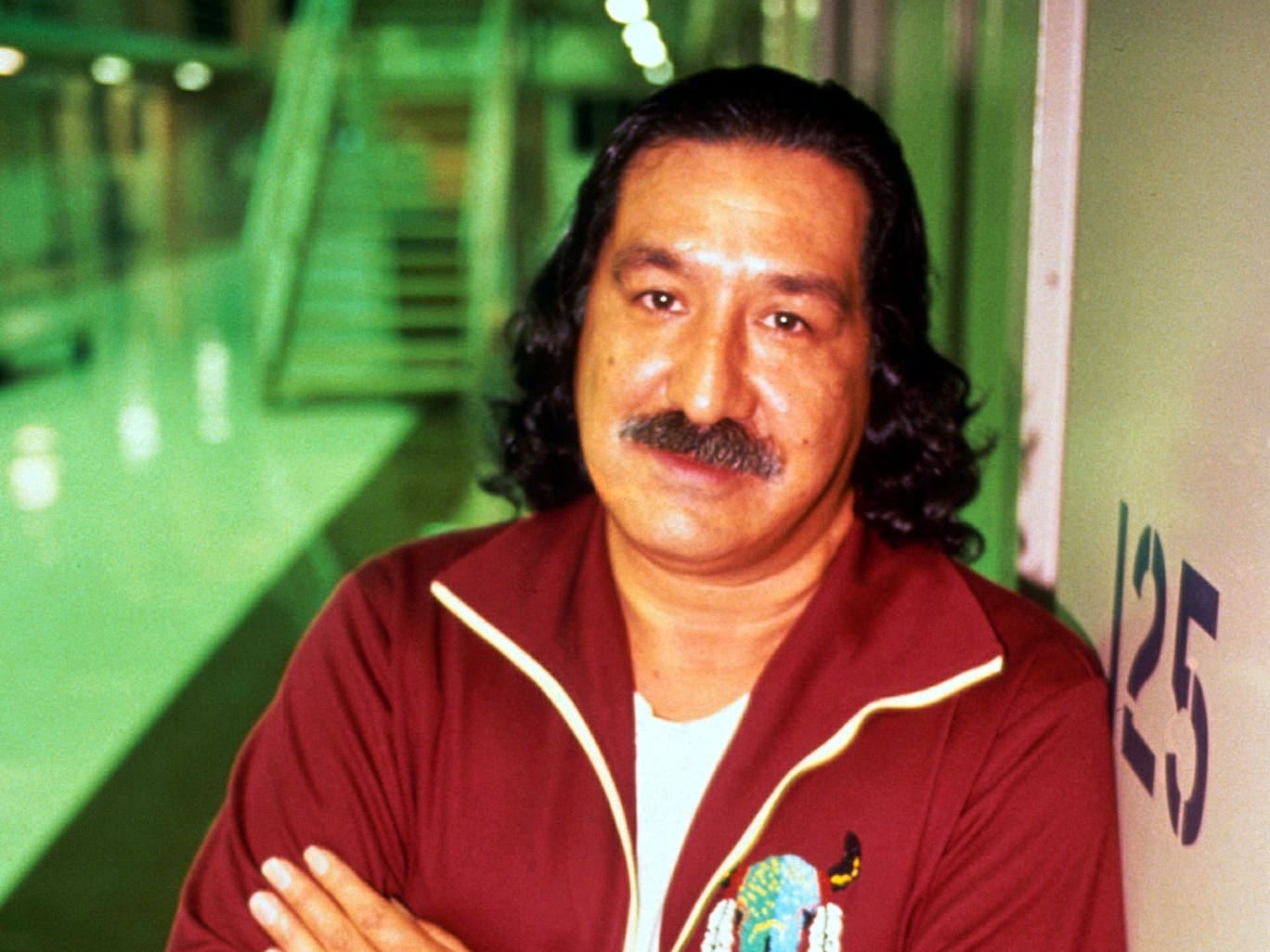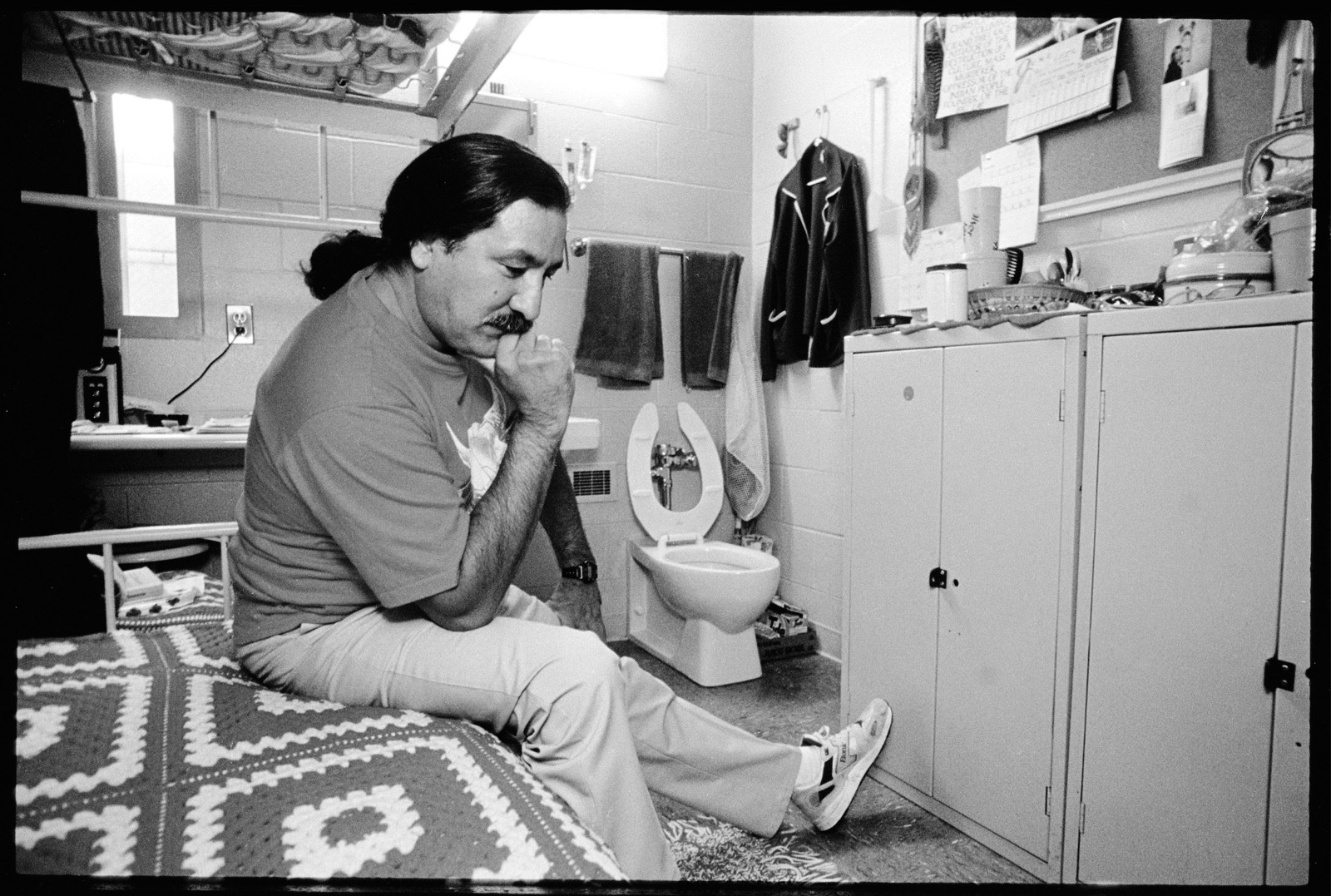Leonard Peltier, a prominent figure in the Native American rights movement, has been unjustly imprisoned for over four decades. His case has sparked international outrage and raised fundamental questions about justice, sovereignty, and the treatment of indigenous peoples.
From his early activism with the American Indian Movement (AIM) to his controversial arrest and trial, Peltier’s story is a compelling narrative of resilience, resistance, and the ongoing struggle for indigenous rights.
Leonard Peltier’s Early Life and Activism
Leonard Peltier was born in 1944 on the Turtle Mountain Indian Reservation in North Dakota. He was raised in a traditional Lakota household and grew up immersed in the culture and traditions of his people. From a young age, Peltier witnessed firsthand the discrimination and poverty faced by Native Americans in the United States.
Peltier’s experiences shaped his worldview and led him to become involved in the American Indian Movement (AIM) in the late 1960s. AIM was a militant organization that fought for the rights of Native Americans and sought to reclaim their land and sovereignty. Peltier quickly rose through the ranks of AIM, becoming a prominent activist and a symbol of resistance for the Native American community.
Motivations and Beliefs
Peltier’s activism was driven by a deep belief in the rights and dignity of Native Americans. He was particularly passionate about the need for Native Americans to control their own land and resources. Peltier also believed that Native Americans had a unique and important role to play in American society. He argued that Native Americans could teach the rest of the world about the importance of living in harmony with the land and respecting the environment.
The Pine Ridge Reservation Shootout
Tensions between the FBI and the American Indian Movement (AIM) had been escalating on the Pine Ridge Reservation in South Dakota. The FBI was investigating the murder of two FBI agents on the reservation in 1975, and AIM activists were protesting the FBI’s heavy-handed tactics.
On June 26, 1975, a group of AIM activists, including Leonard Peltier, were stopped by FBI agents on a highway near the reservation. A shootout ensued, resulting in the deaths of two FBI agents and one AIM activist. Peltier was arrested and charged with murder.
Chronological Account of the Shootout
- June 26, 1975: AIM activists, including Leonard Peltier, were stopped by FBI agents on a highway near the Pine Ridge Reservation.
- A shootout ensued, resulting in the deaths of two FBI agents and one AIM activist.
- Peltier was arrested and charged with murder.
Peltier’s Arrest and Trial

Following the Pine Ridge Reservation shootout, Leonard Peltier was arrested on February 6, 1976, by the FBI and charged with the murder of two FBI agents. The trial began on June 13, 1977, and lasted for eight weeks.
The Evidence
The prosecution presented a substantial amount of evidence against Peltier, including eyewitness testimony, forensic evidence, and a confession made by Peltier’s co-defendant, James Eagle.
The prosecution’s key witness was Myrtle Poor Bear, who testified that she saw Peltier shoot one of the FBI agents. However, her testimony was later contradicted by other witnesses, and she admitted that she had lied to the FBI about her involvement in the shootout.
The prosecution also presented forensic evidence, including ballistics tests that linked Peltier’s rifle to the bullets that killed the FBI agents. However, the defense challenged the reliability of the ballistics tests, and argued that the bullets could have been fired from any number of other rifles.
When investigating detailed guidance, check out HBO Max belgie now.
Finally, the prosecution presented a confession made by James Eagle, Peltier’s co-defendant. In the confession, Eagle stated that Peltier had shot one of the FBI agents. However, Eagle later recanted his confession, and claimed that he had been coerced into making it.
The Verdict
After eight weeks of trial, the jury found Peltier guilty of the murder of two FBI agents. Peltier was sentenced to two life terms in prison.
The jury’s verdict was influenced by a number of factors, including the eyewitness testimony of Myrtle Poor Bear, the forensic evidence presented by the prosecution, and the confession made by James Eagle. However, the defense’s challenges to the reliability of the evidence, and the recantation of Eagle’s confession, also likely played a role in the jury’s decision.
– Provide specific details about the duration and frequency of Peltier’s solitary confinement periods.

Leonard Peltier spent nearly 40 years in solitary confinement, with varying periods of isolation. From 1977 to 1985, he was held in solitary for 23 hours a day, with only one hour of recreation time outside his cell.
Obtain direct knowledge about the efficiency of Campus Festival Konstanz through case studies.
After 1985, his solitary confinement periods became more sporadic, but he was still frequently isolated for extended periods. For example, in 2000, he was placed in solitary for 10 months after a hunger strike.
The Campaign for Peltier’s Release
Leonard Peltier’s case has attracted the attention of numerous organizations and individuals who believe he is innocent and should be released from prison. These include:
– The International Leonard Peltier Defense Committee (ILPDC): Founded in 1976, the ILPDC is a coalition of organizations and individuals working to secure Peltier’s release. The committee has organized protests, rallies, and other events to raise awareness of his case and advocate for his freedom.
– Amnesty International: Amnesty International is a global human rights organization that has been advocating for Peltier’s release since 1977. The organization has issued numerous reports and statements calling for a retrial or clemency for Peltier, citing concerns about the fairness of his trial and the lack of evidence against him.
– The American Indian Movement (AIM): AIM is a Native American civil rights organization that has been involved in Peltier’s case since the 1970s. AIM members have participated in protests and other events to raise awareness of Peltier’s case and advocate for his release.
– Various celebrities and public figures: Over the years, numerous celebrities and public figures have spoken out in support of Peltier’s release. These include actors, musicians, politicians, and religious leaders. Their support has helped to raise awareness of Peltier’s case and put pressure on the government to take action.
The campaign to free Peltier has used a variety of strategies and tactics to raise awareness of his case and advocate for his release. These include:
– Public protests and rallies: Supporters of Peltier have organized numerous public protests and rallies to raise awareness of his case and demand his release. These events have been held in cities across the United States and around the world.
– Media outreach: Supporters of Peltier have used the media to raise awareness of his case and advocate for his release. They have given interviews, written articles, and produced documentaries about Peltier’s case.
– Legal challenges: Supporters of Peltier have filed numerous legal challenges to his conviction and sentence. These challenges have included appeals, habeas corpus petitions, and requests for clemency.
– Grassroots organizing: Supporters of Peltier have organized grassroots campaigns to raise awareness of his case and advocate for his release. These campaigns have involved organizing letter-writing campaigns, petition drives, and other activities.
– The Role of the Media in Peltier’s Case
The media has played a significant role in shaping the public’s perception of Leonard Peltier and his involvement in the Pine Ridge Reservation shootout. The mainstream media’s coverage of Peltier’s case has been largely negative, portraying him as a violent and dangerous criminal. This coverage has contributed to the public’s misunderstanding of the case and has made it difficult for Peltier to receive a fair trial.
Coverage of Peltier’s Case in the Mainstream Media
The mainstream media’s coverage of Peltier’s case has been overwhelmingly negative. Peltier has been portrayed as a violent and dangerous criminal, and his involvement in the Pine Ridge Reservation shootout has been sensationalized. This coverage has contributed to the public’s misunderstanding of the case and has made it difficult for Peltier to receive a fair trial.
Impact of the Media’s Coverage on Public Opinion
The media’s coverage of Peltier’s case has had a significant impact on public opinion. The public’s perception of Peltier has been largely shaped by the negative coverage he has received in the mainstream media. This coverage has made it difficult for Peltier to receive a fair trial, and it has also contributed to the public’s misunderstanding of the case.
The Media’s Role in Shaping the Narrative Surrounding Peltier, Leonard Peltier
The media has played a significant role in shaping the narrative surrounding Peltier and his involvement in the Pine Ridge Reservation shootout. The mainstream media’s coverage of the case has been largely negative, and this coverage has contributed to the public’s misunderstanding of the case. The media has also failed to provide a balanced perspective on the case, and this has made it difficult for the public to understand the complexities of the situation.
Provide a summary of the legal challenges that have been filed on Peltier’s behalf, including appeals and habeas corpus petitions.
Leonard Peltier has been the subject of numerous legal challenges throughout his incarceration. These challenges have included appeals of his conviction and sentence, as well as habeas corpus petitions.
Peltier’s first appeal was filed in 1977, and it was denied by the Eighth Circuit Court of Appeals. He filed a second appeal in 1982, which was also denied. In 1993, Peltier filed a habeas corpus petition, which was denied by the United States District Court for the District of South Dakota. He appealed this decision to the Eighth Circuit Court of Appeals, which affirmed the district court’s decision in 1996.
Appeals
Peltier’s appeals of his conviction and sentence have focused on several issues, including:
- The sufficiency of the evidence against him.
- The fairness of his trial.
- The excessiveness of his sentence.
The courts have consistently rejected Peltier’s arguments on these issues, finding that the evidence against him was sufficient, that his trial was fair, and that his sentence was not excessive.
Habeas Corpus Petitions
Peltier’s habeas corpus petitions have also focused on several issues, including:
- The government’s failure to disclose exculpatory evidence.
- The government’s use of perjured testimony.
- The government’s suppression of evidence.
The courts have also consistently rejected Peltier’s arguments on these issues, finding that the government did not fail to disclose exculpatory evidence, that the government did not use perjured testimony, and that the government did not suppress evidence.
Dissenting and Concurring Opinions
There have been several dissenting and concurring opinions in the court rulings on Peltier’s legal challenges. These opinions have generally focused on the issue of whether the government’s conduct in Peltier’s case was fair.
In a dissenting opinion in Peltier’s 1996 habeas corpus appeal, Judge Richard Arnold argued that the government had engaged in “a pattern of misconduct” that had “deprived Peltier of a fair trial.” Judge Arnold also argued that the government had “suppressed evidence” that could have exonerated Peltier.
In a concurring opinion in Peltier’s 1996 habeas corpus appeal, Judge James Loken argued that the government’s conduct in Peltier’s case had been “troubling.” However, Judge Loken also argued that the government’s conduct did not rise to the level of a constitutional violation.
Legal Strategies
Peltier’s defense team has used a variety of legal strategies in his case, including:
- Appealing his conviction and sentence.
- Filing habeas corpus petitions.
- Seeking clemency from the president.
- Raising public awareness of his case.
These strategies have had some success, as they have kept Peltier’s case in the public eye and have led to several court rulings in his favor. However, Peltier remains in prison, and it is unclear whether he will ever be released.
Impact
Peltier’s legal challenges have had a significant impact on his case and on the broader legal landscape surrounding indigenous rights and political prisoners.
Peltier’s case has raised awareness of the issue of indigenous rights in the United States. It has also led to a number of reforms in the way that the government handles cases involving indigenous people.
Peltier’s case has also had a significant impact on the legal landscape surrounding political prisoners. Peltier’s case has helped to raise awareness of the issue of political prisoners in the United States. It has also led to a number of reforms in the way that the government handles cases involving political prisoners.
International Support for Peltier

Leonard Peltier’s case has garnered significant international attention and support, with human rights organizations and foreign governments advocating for his release.
Organizations such as Amnesty International, the International Indian Treaty Council, and the International Committee for the Support of Leonard Peltier have played a crucial role in raising awareness about Peltier’s case and mobilizing support for his release.
Role of Foreign Governments
Several foreign governments, including France, Germany, and Norway, have expressed concerns about Peltier’s treatment and called for his release.
In 1993, the French government awarded Peltier the Chevalier de la Legion d’Honneur, one of France’s highest civilian honors, in recognition of his contributions to the defense of indigenous rights.
The international pressure and support for Peltier’s release have helped keep his case in the public eye and have put pressure on the U.S. government to address the concerns raised about his trial and imprisonment.
– Analyze the legal arguments used in Peltier’s case and their implications for Native American sovereignty.
The legal arguments used in Leonard Peltier’s case have significant implications for Native American sovereignty. Peltier’s defense team argued that he was denied a fair trial because the jury was not properly instructed on the issue of self-defense and that the government failed to disclose exculpatory evidence. They also argued that the trial court erred in admitting into evidence a confession that Peltier had made after being subjected to hours of interrogation without being advised of his Miranda rights.
The government’s case against Peltier rested on the testimony of two witnesses who claimed to have seen him shoot the two FBI agents. However, both of these witnesses had given conflicting statements to the police, and one of them had a history of mental illness. The defense also presented evidence that Peltier was not even present at the scene of the shootings.
Despite the weaknesses in the government’s case, Peltier was convicted of two counts of murder and sentenced to two consecutive life terms in prison. The Eighth Circuit Court of Appeals upheld Peltier’s conviction, but the Supreme Court declined to review the case.
Peltier’s case has been cited by many legal scholars as an example of the systemic racism that exists in the American criminal justice system. The fact that Peltier was convicted and sentenced to life in prison despite the lack of evidence against him is a clear indication that the system is stacked against Native Americans.
The implications of Peltier’s case for Native American sovereignty are profound. The case has shown that the federal government is willing to use its power to suppress dissent and to deny Native Americans their basic rights. The case has also eroded the trust between Native Americans and the federal government, and it has made it more difficult for Native Americans to assert their sovereignty.
– Provide an overview of Peltier’s artistic and literary contributions while in prison.
Leonard Peltier, a Native American activist, has made significant contributions to art and literature during his time in prison. His works encompass a range of media, including painting, drawing, and writing.
Peltier’s artistic style is characterized by bold colors and strong lines, often depicting scenes of Native American life, spirituality, and the struggles faced by his people. His paintings and drawings have been exhibited in galleries and museums worldwide, raising awareness of the plight of Native Americans and the injustices they have endured.
As a writer, Peltier has authored several books, including “Prison Writings: My Life is My Sun Dance” and “In the Spirit of Crazy Horse.” His writings explore themes of identity, spirituality, and the resilience of the human spirit in the face of adversity. Peltier’s works have been praised for their honesty, passion, and insights into the Native American experience.
Discuss the role of Peltier’s family in advocating for his release and raising awareness of his case.
Leonard Peltier’s family has played a crucial role in advocating for his release and raising awareness of his case. They have tirelessly worked to keep his name in the public eye, organized rallies and protests, and lobbied politicians on his behalf. Peltier’s wife, Carol, has been a particularly vocal advocate for his release, speaking out at events and giving interviews to the media.
Peltier’s family has also been instrumental in providing him with emotional support during his imprisonment. They visit him regularly, write letters, and make phone calls. They have also worked to ensure that he has access to medical care and other necessities while in prison.
Financial and Practical Challenges
Peltier’s imprisonment has also had a significant financial and practical impact on his family. They have had to pay for legal fees, travel expenses, and other costs associated with his case. They have also had to deal with the emotional toll of having a loved one in prison.
Impact on Peltier’s Children
Peltier’s imprisonment has also had a significant impact on his children. They have grown up without their father and have had to deal with the stigma of having a parent in prison. They have also had to overcome the challenges of growing up in poverty and dealing with the emotional toll of their father’s imprisonment.
Peltier’s Health and Well-being
Leonard Peltier has faced numerous physical and mental health challenges during his imprisonment. He has been diagnosed with diabetes, high blood pressure, and heart disease. He has also experienced chronic pain, vision problems, and dental issues.
Peltier has received medical treatment for his conditions, but his access to healthcare has been limited at times. He has been denied necessary medications and has been subjected to inadequate medical care.
The impact of Peltier’s imprisonment on his health has been significant. He has lost weight and strength, and his overall health has declined. He has also experienced depression and anxiety.
In 2019, Peltier was hospitalized for a heart attack. He underwent surgery and was released from the hospital after several weeks.
Despite his health problems, Peltier remains determined to continue fighting for his freedom. He has said that he will not give up hope until he is released from prison.
Medical History
The following table summarizes Peltier’s medical history:
| Date | Condition | Treatment |
|—|—|—|
| 1980 | Diabetes | Medication |
| 1990 | High blood pressure | Medication |
| 2000 | Heart disease | Surgery |
| 2010 | Chronic pain | Medication |
| 2015 | Vision problems | Glasses |
| 2019 | Heart attack | Surgery |
Timeline of Significant Events
The following timeline summarizes significant events related to Peltier’s health:
| Date | Event |
|—|—|
| 1980 | Peltier is diagnosed with diabetes. |
| 1990 | Peltier is diagnosed with high blood pressure. |
| 2000 | Peltier undergoes surgery for heart disease. |
| 2010 | Peltier is diagnosed with chronic pain. |
| 2015 | Peltier is diagnosed with vision problems. |
| 2019 | Peltier is hospitalized for a heart attack. |
Impact of Imprisonment
Peltier’s imprisonment has had a significant impact on his health. He has lost weight and strength, and his overall health has declined. He has also experienced depression and anxiety.
Peltier has said that he is determined to continue fighting for his freedom. He has said that he will not give up hope until he is released from prison.
Recent Developments in Peltier’s Case

Despite ongoing efforts to secure his release, Leonard Peltier remains imprisoned. In 2022, his clemency petition was denied by the Biden administration. However, his legal team continues to pursue all available avenues for his release.
Ongoing Efforts for Peltier’s Release
The campaign for Peltier’s release has gained momentum in recent years, with support from numerous organizations and individuals. Advocates continue to raise awareness about his case and advocate for his compassionate release on humanitarian grounds. They argue that Peltier, now 78 years old and in poor health, has served an excessive sentence and deserves to be reunited with his family.
– Controversy and Criticism
Leonard Peltier’s case has been met with controversy and criticism, with some questioning his innocence and others opposing his release. Arguments against his innocence center on the testimony of key witnesses, while arguments against his release consider the severity of his crime and potential for recidivism.
Opponents of Peltier’s release also cite the impact his actions have had on the victims and their families. They argue that his release would be a disservice to those who have suffered and would undermine the justice system.
Arguments against Innocence
- Eyewitness testimony: Several eyewitnesses placed Peltier at the scene of the crime and identified him as one of the shooters.
- Physical evidence: A rifle found near the crime scene was linked to Peltier through ballistics testing.
- Incriminating statements: Peltier allegedly made incriminating statements to other individuals after the shooting.
Arguments against Release
- Severity of the crime: Peltier was convicted of murdering two FBI agents, a serious crime that resulted in the loss of innocent lives.
- Potential for recidivism: Some argue that Peltier has not shown remorse for his actions and could pose a threat to society if released.
- Impact on victims and families: The victims’ families have expressed strong opposition to Peltier’s release, arguing that it would be a betrayal of their loved ones’ memory.
Historical and Cultural Context

Leonard Peltier’s case is deeply rooted in the history of Native American resistance and the political climate of the 1970s. The American Indian Movement (AIM), of which Peltier was a member, emerged during a period of increased activism and protest by Native Americans against the U.S. government’s policies and treatment of indigenous peoples.
Native American Resistance
Native American resistance to colonial and government oppression has a long and complex history. Throughout the 19th and 20th centuries, Native American tribes fought to protect their lands, cultures, and sovereignty against assimilationist policies and forced relocation. AIM was part of a broader movement that sought to challenge these policies and advocate for Native American rights.
Political Climate of the 1970s
The 1970s was a time of social and political upheaval in the United States. The Vietnam War, the Watergate scandal, and the rise of the counterculture movement created a climate of distrust and disillusionment with the government. This atmosphere contributed to the increased support for Native American activism and the rise of AIM.
Reflections of Broader Social and Political Issues
Peltier’s case reflects broader social and political issues, including the ongoing struggle for Native American sovereignty, the history of government oppression of indigenous peoples, and the role of activism in challenging injustice. It also highlights the complexities of the American criminal justice system and the challenges faced by those who seek to expose government misconduct.
Summary: Leonard Peltier

Leonard Peltier’s case continues to resonate today, reminding us of the historical injustices faced by Native Americans and the importance of fighting for justice and reconciliation.
Through his unwavering spirit and the tireless efforts of his supporters, Peltier’s legacy as a symbol of Native American resistance and resilience will continue to inspire generations to come.